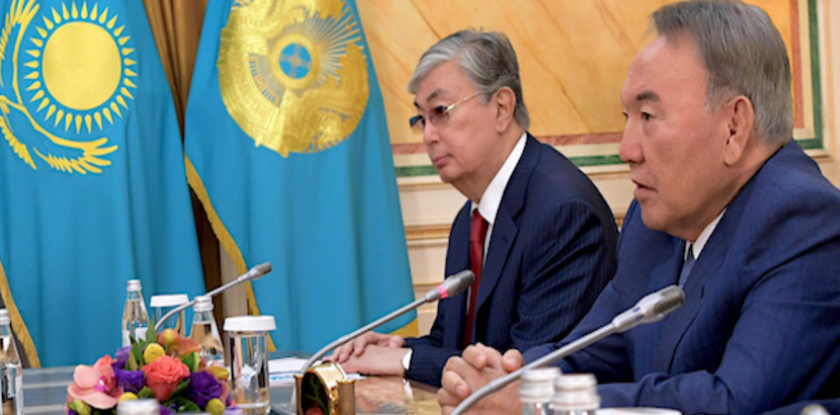As a result of the drop of the oil prices that has overlapped with the problems caused by the global march of the coronavirus and the existing difficulties in the world economy, Akorda and the Library have found themselves facing the challenges they have to respond to. However, the efficiency of this response is highly dubious.
And not because the authorities are acting in an inefficient way or delay their actions. On the contrary, as early as March 9, 2020, the Government and the National Bank of Kazakhstan delivered a joint statement while the National Bank had dramatically increased the base rate from 9,25% to 12%. In his turn, President Kosygin-Jomart Tokayev has held a meeting and formed the Situation Room under the leadership of Prime Minister Askar Mamin. All this — not a bad thing.
The problem, however, lies in the fact that all these efforts can be compared with an attempt to hide under an umbrella at the time of a hurricane. Imagine the pouring rain, the lightnings, the gale force wind threatening to snatch the umbrella from your hands and take it away into darkness… But you are still trying to shuffle in some unknown direction hoping to find a shelter while simultaneously risking to trip over and fall smashing yourself till it bleeds or even collapse into a deep hole filled with either water or sewage… And perhaps even drown in it.
This is the position Akorda and the Library have found themselves in today.
In our opinion, of the two major threats for Kazakhstan — the decrease of the national currency exchange rate against the dollar and the euro and the drop of the world oil prices — the first one is dangerous from the tactical standpoint (in other words, it’s going to be relevant in the course of the next couple of days, perhaps months at the most) whereas the second one may continue to exist for several years to come.
Moreover, it is very likely that, in contrast with the Russian ruble, the National Bank of the Republic of Kazakhstan will be able to keep the tenge from the panic collapses and the then drastic rebounds. Simply due to the fact that the Kazakh currency market is more than over-regulated and, one way or another, all its participants are sailing under the Agency for Regulation and Development of the Financial Market and the National Bank of Kazakhstan.
Of course, if, eventually, the Russian currency exchange rate will be strongly lowered against the pre-crisis level, it will be a different matter. Then we may face what had already happened before when the Kazakhs started buying everything in Russia and importing it to Kazakhstan on a massive-scale. However, something like this is not going to begin tomorrow; it may happen closer to the end of the spring or at the start of the summer when not just the weather but the exchange rates of the two national currencies stabilize.
As for the drop of the world hydrocarbon prices and their anchoring at the US30 $-40 mark per barrel, it is going to put pressure on the Kazakh economy, the state budget and the tenge exchange rate over the course of several years. And Kazakhstan will have nothing to pit against it.
This pressure might and, theoretically, is going to result in the reduction of oil extraction in the country; to what extent, however, is still open to interpretation since, on one hand, the oil prices surpass 50 $ and even 60 $ per barrel in most Kazakh oil fields; on the other hand, the domestic oil prices today appear to be close to the current global prices.
Be as it may, thanks to the «safety cushion» in the form of the Sovereign Fund, Akorda and the Library may have the luxury of not responding to the situation immediately but wait until the situation on the external markets returns to normal and then take the specific steps to adapt to the new conditions.
Therefore, there is no point in panicking, yet there is no point in putting all your hopes onto the state, either. The authorities, of course, will try to do everything they can in order to avoid the dramatic drop of the exchange rate, the total rise of the prices, the forming of the deficits of individual types of goods or the absence of the internal political stability. Within the realm of what is possible. Or, to be more precise, within the realm of what is necessary to preserve the internal political stability. For this is precisely what AKorda and the Library need more than anything today.





